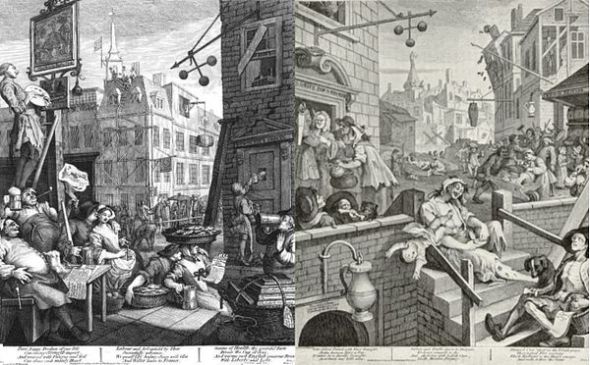I’m on FIRE with the blogging this month! Quantity rather than quality, perhaps, but anything’s better than nowt. I would like to point out not all my opinion pieces will be having a pop at things I read in the Guardian, honest. It’s just whenever I find a Facebook share comment extending into the third paragraph, I’m trying to remember that if I’ve got that much to say, this is probably a better place for it. Thus Facebook can remain the happy realm of holiday snaps, George Takei and Buzzfeeds that we all know and WISH we could stop looking at. Enjoy!
This morning saw the publication of one of the most bizarre articles I’ve seen in the Graun for some time. The paper reports, with apparent disapproval, that several millionaires do not plan on leaving any of their money to their children. The miserly magnates include John Roberts (of whom I’ve never heard, but who judging from the image accompanying the article, can’t make toast worth a damn); musical maestro and Gollum-a-like Andrew Lloyd-Webber; telly chef Nigella Lawson; and martial arts movie star Jackie Chan.
For something in a left-leaning paper, the article’s response to this is frankly weird. Erica Buis, while acknowledging that the children of a millionaire are hardly to be pitied, nonetheless takes their part against their parsimonious parent:
is this really the economic climate in which to be sending your kids out into the cold, then blaming them if they freeze? … would it be wrong for Roberts to give them half a deposit on a small flat? Something that levels the playing field between them and the younger version of him, now that the average deposit required for a mortgage is 10 times higher than it was around 20 years ago?
This seems to me to miss the point completely, which is why these individuals should be in possession of such staggering wealth to hand round or not as they please in the first place. Never mind ‘levelling the playing field’ between these oofy elders and their cash-strapped kids. What about ‘levelling the playing field’ between the children of the rich and the rest of the world? These people will already have had access to the best of opportunities to set themselves up for a prosperous future – private education, additional tuition, secure and safe living environment, a network of powerful family friends, and that most precious of commodities, time. I very much doubt that Nigella’s brood have spent their evenings and weekends manning the tills in Tesco, or getting up at 5AM to do a paper-round before school in order to be able to afford trainers, or music lessons, or food.
Whether their parents leave them an additional wodge of cash when they shuffle off the perch is neither here nor there – by the time that happens, the children of the rich have already reaped the benefits of birth. Rich children and the adults they grow into by and large do better academically, physically, professionally, and socially, and this is a product of the environment they grew up in and the opportunities that gave them, not a status magically conferred upon the death of their parents and the inheritance of their wealth. I don’t blame these people, or their parents, for taking advantage of these opportunities – but the fact they are only available to an elite minority is a big problem. If equality is Buis’ concern, rather than mere acquisitiveness, she should be questioning the validity not of selfishness, but of limitless personal wealth itself. The aim should not be to quibble about how a particular rich man disposes his estate, but to tax that estate proportionately throughout life, so that no one individual ends up with the power to bestow the gross national product of a small country, whether it be upon a child or a chihuahua.
Quite aside from this larger point, I think people who ‘expect’ inheritance are odious. If parents want to give gifts or help out, that’s very lovely, but what on earth makes people think that they’re entitled? There has been much wittering in the press over the last 10 years about the ‘SKI’ set – baby boomers gleefully “Spending the Kids’ Inheritance.” But why should money be piled up for an uncertain future, rather than spent making the most out of the one life these ‘selfish’ parents are ever going to have? Moreover, for most people, it’s not so much a question of ‘spending the inheritance’ as ‘making ends meet’: the idea that their grown-up children are ‘counting on’ an inheritance can blight the lives of less well-off parents, who work too hard and live too meagrely out of a sense of obligation to ‘leave something for the kids’. On the other side of the coin, inheritance is often used as a weapon – some parents seem to enjoy the power it gives, rewarding this child and punishing that one from beyond the grave, safe from the emotional fall-out. The anger, hurt and resentment this causes can tear apart the family left behind, when they ought to be supporting one another through their grief.
As my wonderful Nan was wont to say, ‘there’s no pockets in a shroud’. She gave gifts while she was still around to see them enjoyed, died leaving little but the memory of her kindness and good sense – an inheritance which all her children, and grandchildren, can cherish.







